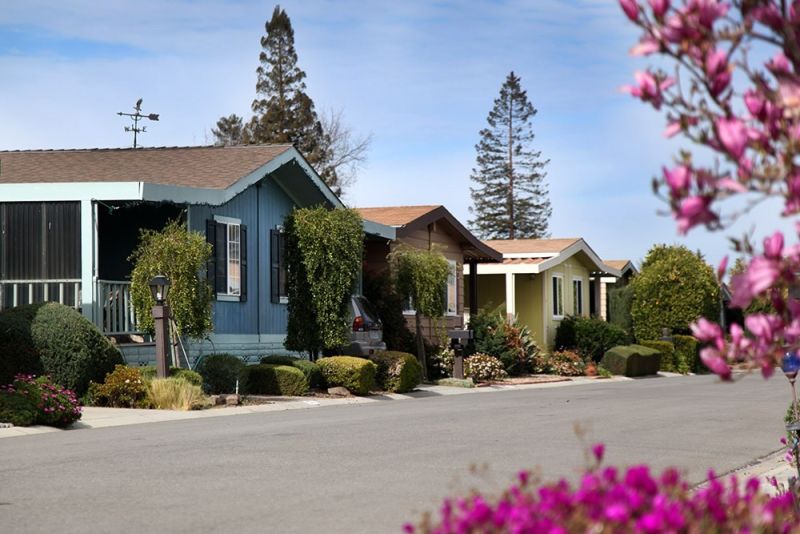Current Moratorium Expires Thursday
The city's actions come as the current moratorium on mobile home park conversions in San Jose is set to expire Thursday. The council implemented that temporary moratorium after residents of the Winchester Ranch Mobile Home Park in west San Jose learned the landowners planned to sell the 16-acre park to PulteGroup, a developer. Plans for new developments include a hotel and high-density residential project.
Winchester Ranch is within walking distance of the rapidly growing Santana Row, with trendy shops and hotels.
If those plans go through, roughly 140 seniors, including Ruth Greathouse, could lose their current home. Greathouse, 71, urged City Council members to adopt greater tenant protections for mobile park residents.
"Mobile home parks are not really parks. They are communities. Each one diverse and separate and real and close," said Greathouse, president of the park's homeowners association. "We cannot destroy those communities in San Jose. We need to protect and preserve them."
Other mobile home park residents who spoke at the meeting fear that if Winchester Ranch goes, their parks could close as well.
'Please Save Our Homes'
"Please save our homes," said Sonia Rivera, a mother of two who lives at Mobilehome Manor & R V Park and said she can't afford rental prices elsewhere. If the council doesn't act, she said, "we are going to be the next homeless living under a bridge."
Winchester Ranch co-owner Lee Arioto said he cares about residents and is trying to do what's best for his family. He spoke about his plans to offer current residents the chance to live in new apartments on-site, for a comparable rent to what they are paying now for land.
He added that the current moratorium hinders his family's ability to purchase mobile homes from at least 10 residents interested in selling ahead of the potential sale.
"We don’t want to be in business any longer. We’d like to convert it, take care of our residents ... in a nice, brand-new community," said Arioto. "That means no water heaters break down, no furnaces break down. We are offering that. If that doesn’t work, we are closing the park."
The meeting featured lengthy soul-searching from City Council members, with many recognizing the difficulty in balancing affordable housing and a landowner's rights.
But Councilman Raul Peralez said the council has denied landowners plenty of times "the right to do something with their property."
"We do that with our zoning and our planning, and sometimes those owners are extremely frustrated, but we have that ability to vet those (applications) here," he said.
Council members debated whether the city could perhaps reserve mobile home parks solely for that use, limiting landowner options if they wanted to sell.
Councilman Johnny Khamis, citing his previous job in the financial sector, disagreed that investors would be lining up to buy mobile home parks with limits on space rents.
"However, I do think that all of you have a right to make sure that you are not cheated out of anything. So, it is a fine bridge here, but I just want to base this discussion on reality. We cannot ask people to keep their property forever for one use," Khamis said.
Tuesday night's City Council vote was a step in the right direction, said Diane Castillo, an attorney for the Law Foundation of Silicon Valley. She said she hopes other cities in the region struggling with the lack of affordable housing are paying attention.
"This is affordable ownership housing, and other communities should strive to preserve this type of housing as well," she said.

